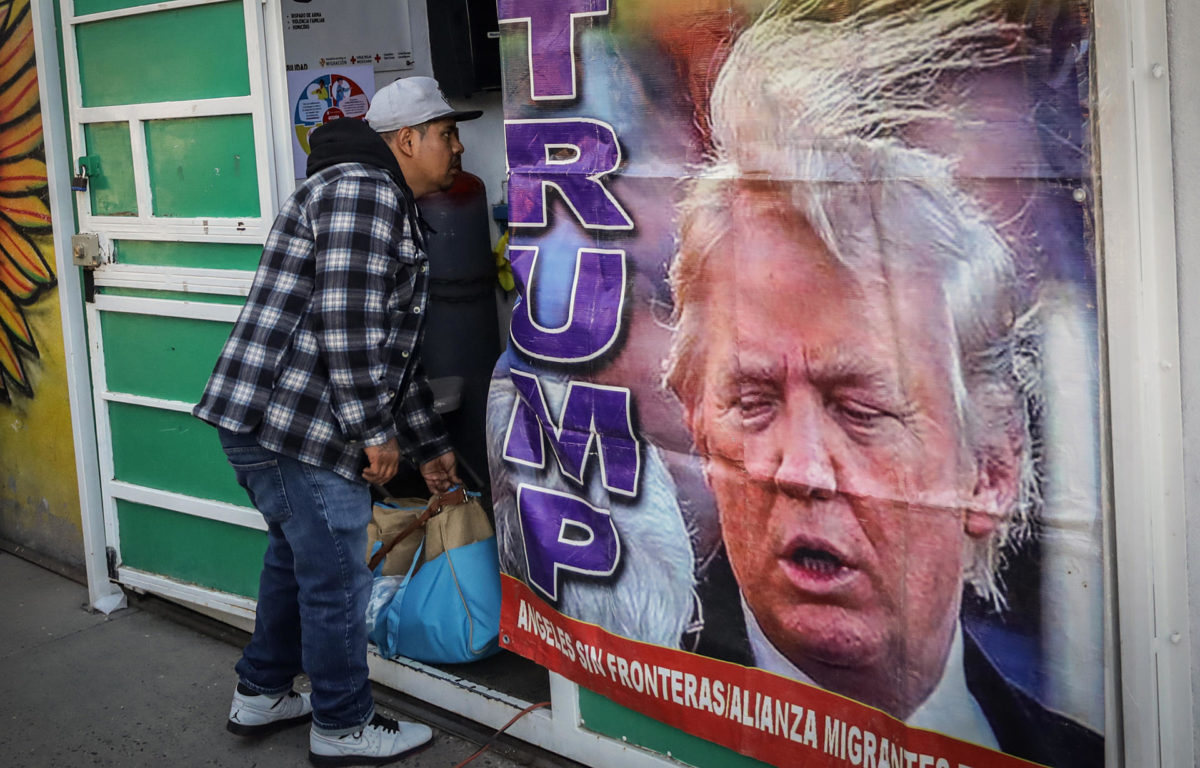Ukrainian President Volodymyr Zelensky believes there is a strong chance of ending the war in 2025 once Republican Donald Trump is inaugurated as US president at the end of January.
“It will be a difficult road, but I am confident that we have every chance to achieve it next year,” Zelensky said at the Third International Ukrainian Grain Conference.
He explained that the war “will end when Russia decides it wants to end it,” but also when the United States “takes a stronger position” and “when the Global South comes to Ukraine’s side and in favor of ending” the conflict.
Zelensky maintained that there are concrete steps to end the war included in the Ukraine Peace Formula, although Russia “will not agree” with all of them, he admitted.

«But there is the UN Charter and all our actions are based on it. We hope they have the support of our partners,” he added.
Zelensky stressed that he does not want the world to think that Ukraine is only insisting on its own peace plan, as Russia wants to make it seem.
«We are open to the proposals of the leaders of the African countries, Asia and the Arab States. I also want to hear suggestions from the new president of the United States. “I think we will see them in January and we will have a plan to end this war,” he concluded. EFE
#Zelensky #believes #strong #chances #war

**To what extent can the “Global South” exert meaningful pressure on Russia to engage in constructive peace negotiations, and what specific actions could they take to achieve this goal?**
## World Today News: Interview with Experts on Zelensky’s Declaration
**Introduction:**
Welcome to World Today News. Today we delve into the recent comments by Ukrainian President Volodymyr Zelensky expressing his optimism about ending the war in 2025 contingent upon a change in US leadership. To discuss the ramifications and complexities of this statement, we are joined by two distinguished guests:
* **Dr. Emily Carter**, Professor of International Relations at Georgetown University, specializing in Eastern European politics and conflict resolution.
* **Ambassador John Smith**, Former US Diplomat with extensive experience in Eastern Europe, now Senior Fellow at the Atlantic Council.
**Section 1: Zelensky’s Optimism and its Basis**
* **Interviewer:** Dr. Carter, President Zelensky expressed confidence in ending the war in 2025, citing a potential shift in US policy under a Trump presidency as a key factor. How realistic is this hope, and what underlying factors might be influencing Zelensky’s optimism?
* **Interviewer:** Ambassador Smith, how do you interpret Zelensky’s emphasis on the role of the US, particularly a potential change in administration, in achieving peace? Does this reflect a realistic assessment of US leverage in the current geopolitical landscape?
**Section 2: The Role of the “Global South”**
* **Interviewer:** Dr. Carter, Zelensky also mentioned the “Global South” aligning with Ukraine. What does this entail in practical terms, and what specific steps can those countries take to contribute to a peaceful resolution?
* **Interviewer:** Ambassador Smith, do you foresee tangible actions from the “Global South” that could influence Russia’s stance on the conflict? How might these actions differ from those taken by Western nations?
**Section 3: The Ukrainian Peace Formula and its Reception**
* **Interviewer:** Dr. Carter, Zelensky mentioned the Ukrainians’ proposed peace formula but acknowledged Russia’s likely resistance. What are the key elements of this peace formula, and what concessions might Ukraine be willing to make to gain broader international support for its implementation?
* **Interviewer:** Ambassador Smith, how do you assess the potential for Russia to accept any significant concessions outlined in Ukraine’s peace plan? What alternative pathways to peace, if any, might emerge in the coming year?
**Section 4: The International Community’s Role**
* **Interviewer:** Dr. Carter, Zelensky stressed the importance of international involvement and emphasized openness to proposals from various regions. How crucial is it for the international community to remain unified in its approach to the conflict, and what challenges might arise in maintaining this consensus?
* **Interviewer:** Ambassador Smith, given the potential for differing priorities among global powers, what mechanisms can be put in place to ensure effective multilateral diplomacy and prevent the conflict from escalating further?
**Concluding Remarks:**
* **Interviewer:** Thank you both for sharing your insights on this complex and crucial topic. The road towards peace in Ukraine remains arduous, and the coming year will likely be decisive. These conversations are vital to understanding the various perspectives and potential solutions that can contribute to a lasting resolution to this conflict.
